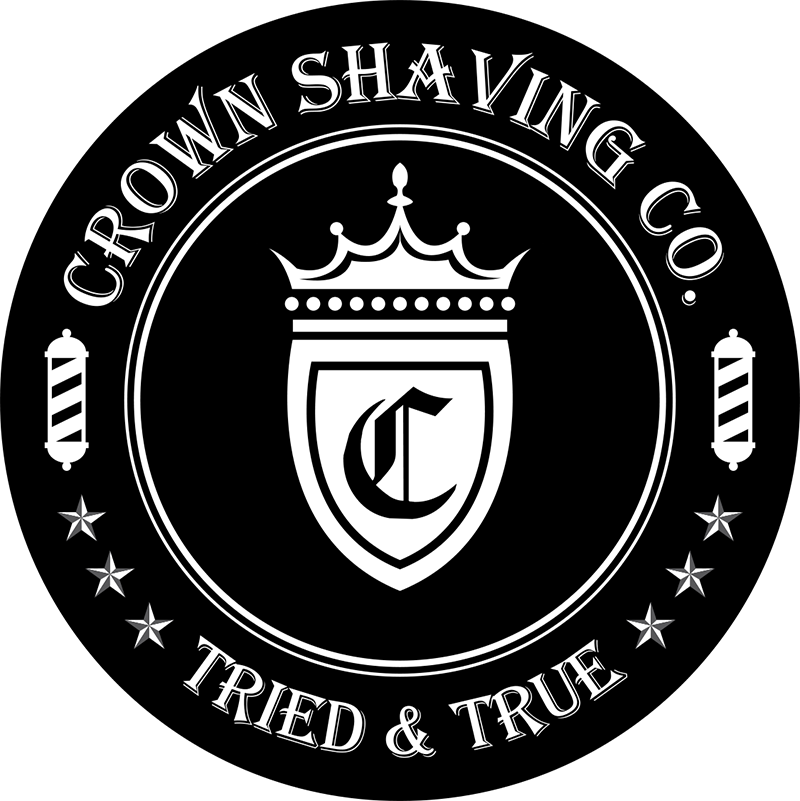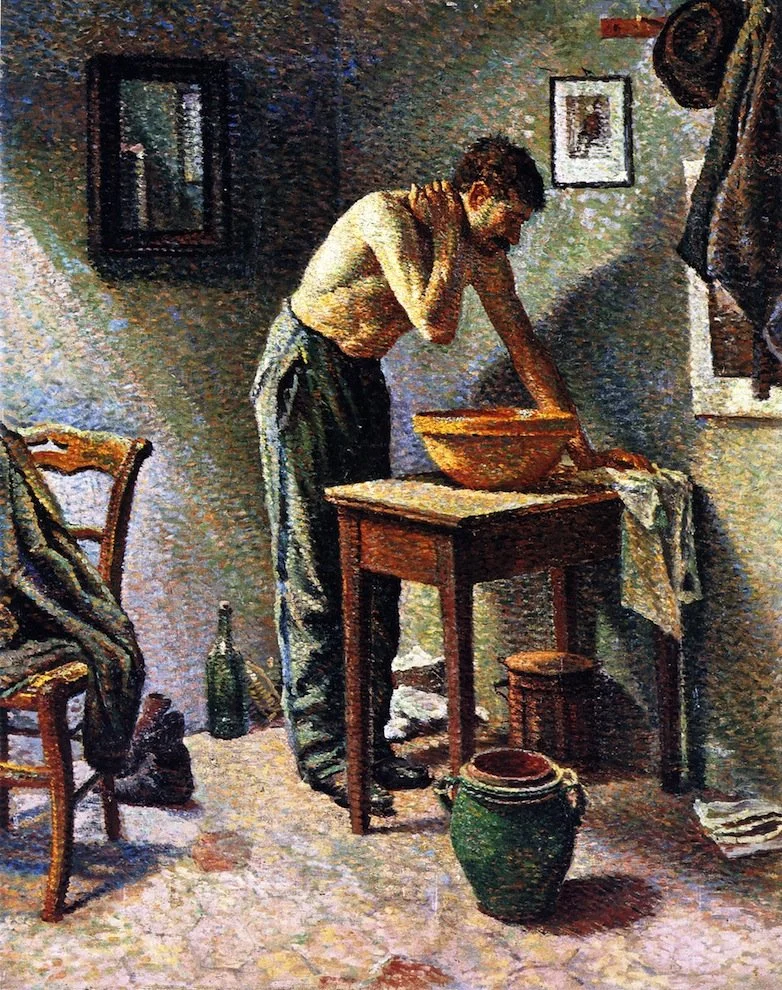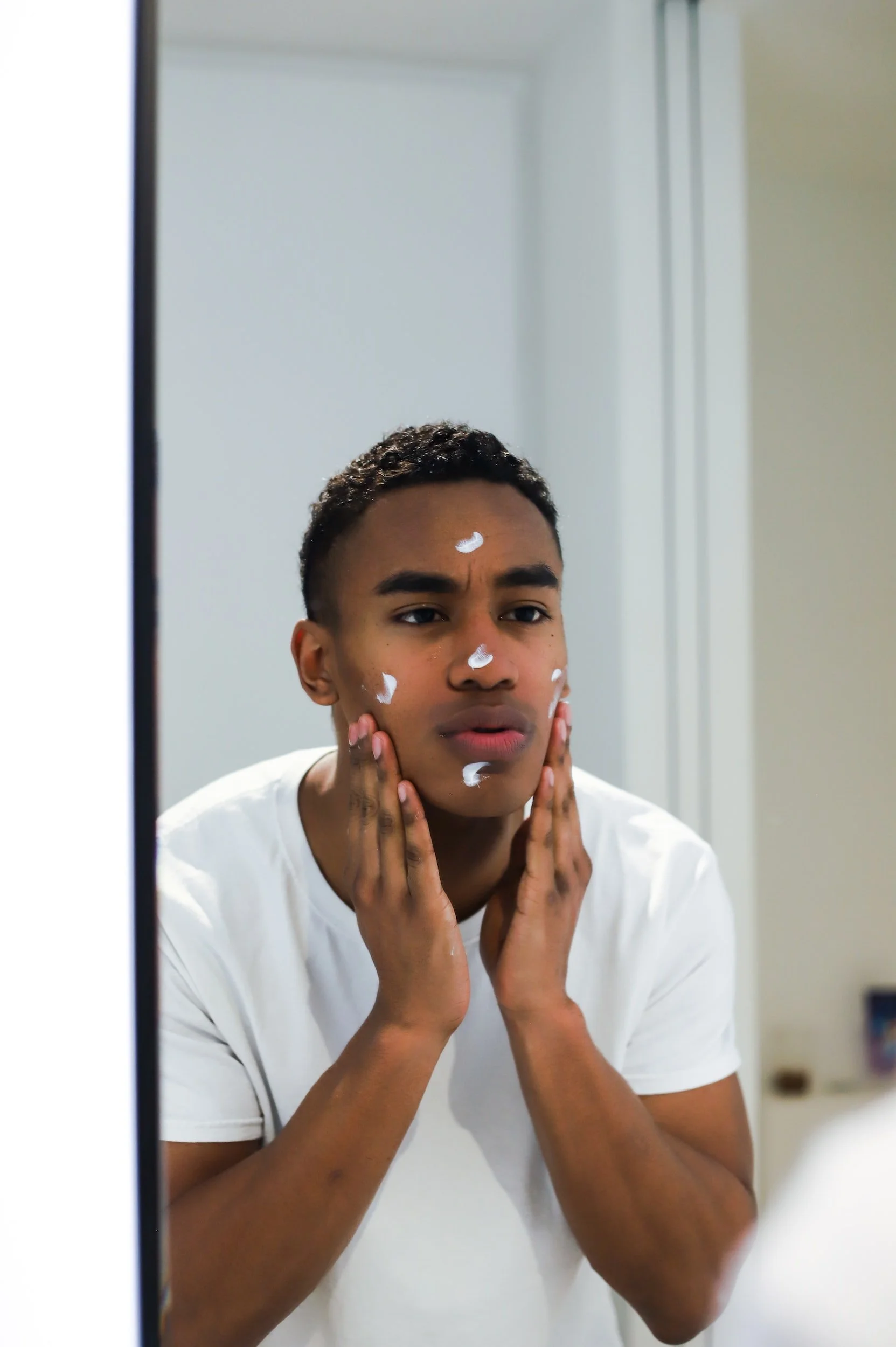A Glossary of Every Grooming Term Men Ought to Know. Part II: Skincare
Art: “Man Washing” by Maximilien Luce, circa 1887.
Source: Wikimedia Commons
Don’t fly blind.
We said that last time we published volume one of this series, and we’d say it again.
The last thing you want to do when it comes to your look and hygiene is fly blind.
Folks will look at a man’s face, and when they do, they’ll judge him based on its upkeep (or lack thereof).
Evolution’s not here to make friends, so play the game and you’ll fare well.
We’re going to cover all major categories in this endeavour, and that includes shaving, bearding, hair, and yes, the topic of this first instalment—skincare. By the way, obvious terms like “sideburns” and “shampoo” didn’t make the cut. And yes, everything’s in alphabetical order.
Learn these, gentlemen, and master the impression you make on the world.
Let’s begin.
Avocado Oil
Here’s one of our favourite essential oils (you’ll learn more about all of them in a few), and for good reason: Once applied to your skin, avocado oil goes to work crafting a barrier, the likes through which hydration can’t be lost. It’s also good for relieving inflammation from all those environmental skin stressors (or “stimuli”). Think noxious fumes, smog, and who knows what else.
We put avocado oil in our Active Relief Hand Cream, much to the joy of many a North American tradesman and mechanic.
Azelaic Acid
A known general in the wars on acne and rosacea, azelaic acid does double duty as an anti-inflammatory and an anti-oxidant for the aforesaid “cutaneous” conditions. You’ll find it in creams and serums that fight acne and even out skin tones. You’ll also find it in grains like barley and wheat, as in grains spawn the compound known as azelaic acid.
In an ideal world, Daily Moisturizers don’t get left behind.
Caffeine
The kick in your morning Joe owns real estate in skincare, too, particularly in the eye cream market. We don’t make those, not that we’re against them or anything. The prevalent notion is that caffeine’s an anti-oxidant against free radicals, and that it stimulates blood flow.
But check this out: Caffeine’s proven to be a respectable guard ageing ultra-violet, skin cancer-causing rays, especially when it’s put in sunscreens.
Charcoal (Activated)
What you use to charbroil porterhouses is, in theory, also good for your skin, yes. But, there’s a technical difference between the two; Charcoal briquettes are great for cooking since they’ll hold heat before breaking down. But when you heat charcoal up enough, it reduces to a powder (or activated charcoal) with an ability to “bind” to and absorb contaminants like skin impurities and micro bacterials. Now you know why we featured the stuff in our Daily Charcoal Face Wash.
Collagen
This is what gives our ligaments, tendons and skin the elasticity and strength they need to keep us from just collapsing into a horrific hodgepodge of gore and guts. Collagen’s also in all manner of skincare products, namely moisturizers. But since our bodies make it, the jury’s still out on whether collagen-based creams are all that beneficial for us. Based on this Harvard article, collagen’s “not naturally found on the skin’s surface but in the deeper levels.”
Emollient
Often confused as the synonym for “moisturizer,” an emollient basically does the same job — it’ll soothe and hydrate skin.
But technically, an emollients are one of three key ingredient groups that make up a moisturizer; Humectants and occlusives are the other two, but they have their own write ups here. You’ll see ‘em.
Emollients soothe, hydrate, and altogether benefit human skin. Some will even lock in said moisture, kind of like a Limit Buy when you trade stocks. Monster skin’s another story, though.
For folks unlucky enough to have eczema, emollients are life rafts.
Be good to your hide, and it’ll be good to you.
Essential Oil(s)
HIpsum. There are a bunch of oils that count as plant oils, but not all oil that can come from a plant counts as plant oil by default. It’s way simpler than it sounds. More importantly, essential oils are absolute boons for your skin, and there’s plenty of peer-reviewed data to back it up. Some essential oils you may have already met include jojoba oil, the aforementioned avocado oil, cedar wood oil (this guy’s great for hair growth stimulation), plus a few more.
Humecant
The noble cousin of the emollient and the occlusive, the humble humectant retains precious water in the skin.
But so you know, the air itself can count as an humectant since humidity helps pull water into man skin. A good thing. Notice how your hide looks great in the heat? Humectants.
pH
For those who don’t know, when we talk about a skin’s pH level, we’re referring to how acidic or alkaline it is within scalable terms. Unlike the blood type surging through James Cameron’s aliens, “acidic” is not a bad thing in the context of skincare.
“An optimal pH level is 4.7, even 5.7,” specifies Dr. Ben Barankin, Lead Dermatologist at the Toronto Dermatology Centre. “This is an acidic level for pH, and that’s ideal for your skin’s health — it will keep moisture in and kick microbes out.”
“Neutral pH is considered 7 (i.e. pure water),” says Dr. Barankin. “ If your pH goes up, then your skin is too alkaline, resulting in flaky, red skin.”
Retinoids
Think of retinoids as a family of Vitamin A-based products, and a handful of them are boons for people with acne vulgaris. You’ve got adapalene, tazarotene and trifarotene, for instance, all of which are topical treatments (meaning you rub them onto your skin). You’ll need a doctor’s autograph to use them.
Fact: Tretinoin was the first retinoid to be approved by the FDA — a formula that keeps pores “from clogging” and acne scars at bay — and it happened way back in 1971.
Salicylic Acid
Like azelaic acid — scroll up to the top for that one — this stuff specializes in neutralizing acne. Classified by suits as a “beta hydroxy acid” (or AHA), it unclogs pores and lets skin breathe easy. They also call that “exfoliation.” You’ll find this in things like facial cleansers, and for what it’s worth, there are double-blind, palcebo controlled tests like is one that prove SA’s a good guy.
Still, talk to a dermatologist before even thinking about this stuff.
In fact, don’t ever take what we say as anything even remotely close to medial advice.
And we’ll keep saying that. We’re here to share information that could benefit your life, but we’re not health professionals. Don’t forget that.
Sebum
Your skin has its own way to stay moisturized, and it does so by excreting something called “sebum.” Sebum’s a mix of natural oils secreted from our “sebaceous glands,” which live just beneath the skin in your hair follicle (we recently talked about these) and if it weren’t for this stuff, your hide would dry out like a bad crop.
Conversely, if one’s follicle pumps too much sebum, chances are they’ll have oily skin. Oily skin can lead to misfortunes like acne.
Sebum’s tricky like that.



